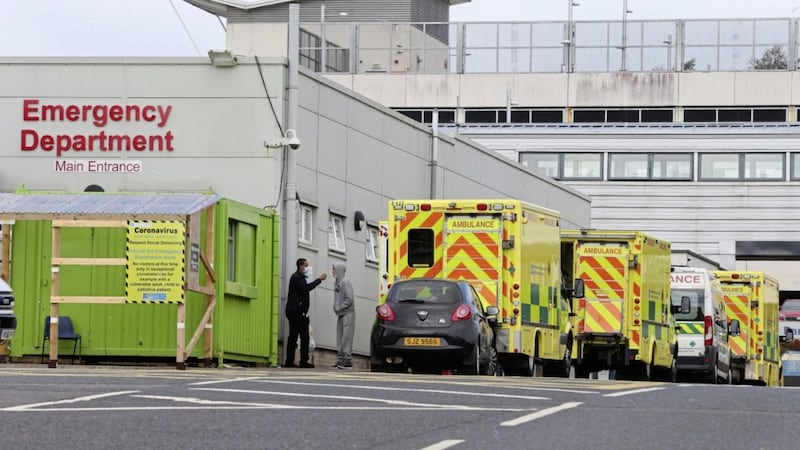VOLUNTEERS will drive ambulance cars for some patients in need as part of a pilot scheme in London due to launch next month.
It comes as new figures last week showed ambulance response times and A&E performance in England have dropped to their lowest levels on record while the backlog of patients waiting for care has continued to grow.
Response times in Northern Ireland are also at record levels, reflecting a deepening crisis across the regional health service.
Last week, 39-year-old Jody Keenan died in Newry, Co Down waiting for paramedics, while lawyers for west Belfast woman Anne Gannon claim that a wait of nearly nine hours for an emergency crew may have contributed to the death of her 25-year-old son Lee earlier this year.
London Ambulance Service (LAS) said trained volunteers already respond to 999 calls in their own car alongside ambulances. But it confirmed that such volunteers would now be deployed in ambulance cars for lower category calls in some instances.
Volunteers are equipped, trained to use defibrillators and support LAS at life-threatening emergency calls in their area, the service said.
Under the new scheme, expected to launch in May, they would also be sent out to lower category (3&4) calls where it has been judged to be safe for a trained volunteer to accompany a patient but would not be appropriate for a taxi, LAS said.
An LAS spokesperson said: "This project builds on our well-established network of volunteers who respond to emergencies to help ensure our ambulances can reach the patients that need us the most.
"These fully trained volunteers, who already respond to 999 calls in their communities, will help patients who have been assessed not to need of an ambulance but who may need more support than a taxi can provide."
The Daily Telegraph reported that 22 volunteers had so far signed up to the scheme.
The NHS has nationally funded the £100,000 pilot scheme and is expected to monitor progress to see if there can be any shared learning across the system.
On Thursday, figures showed that the average response time last month for ambulances in England dealing with the most urgent incidents - defined as calls from people with life-threatening illnesses or injuries - was nine minutes and 35 seconds.
This is up from eight minutes and 51 seconds in February and is the longest average since current records began in August 2017.








